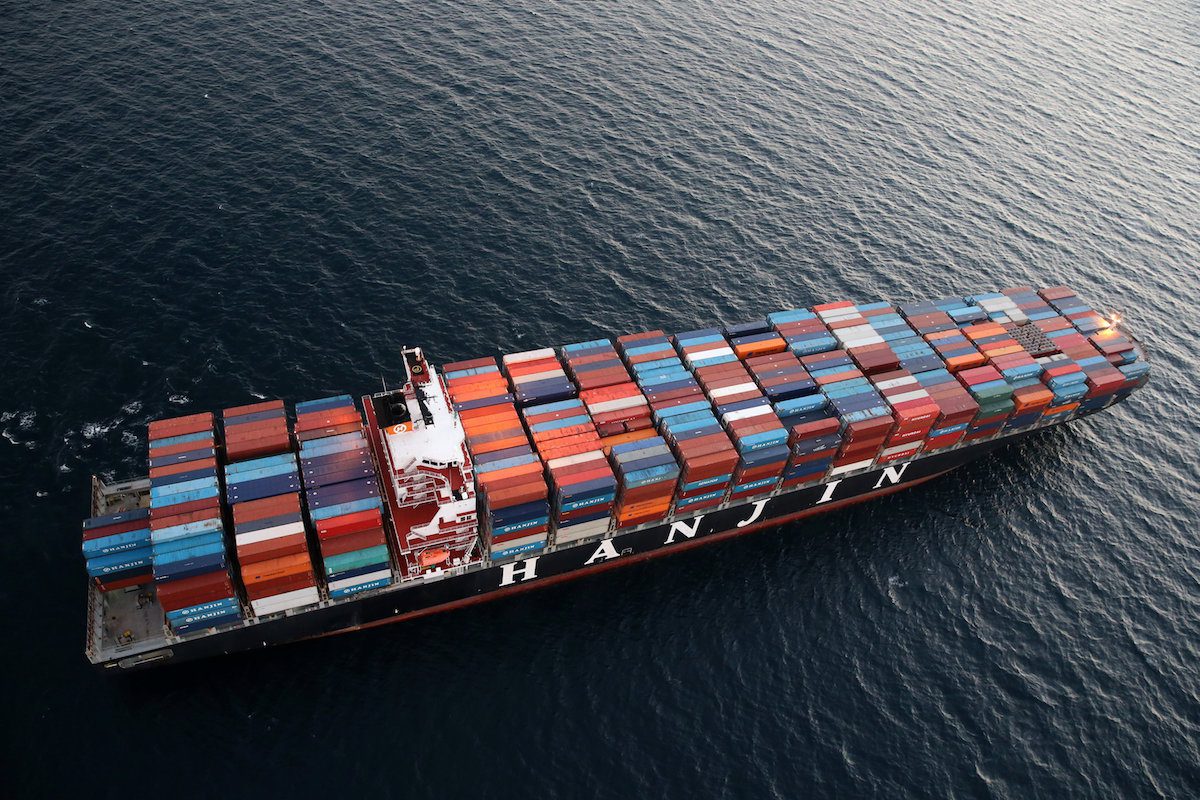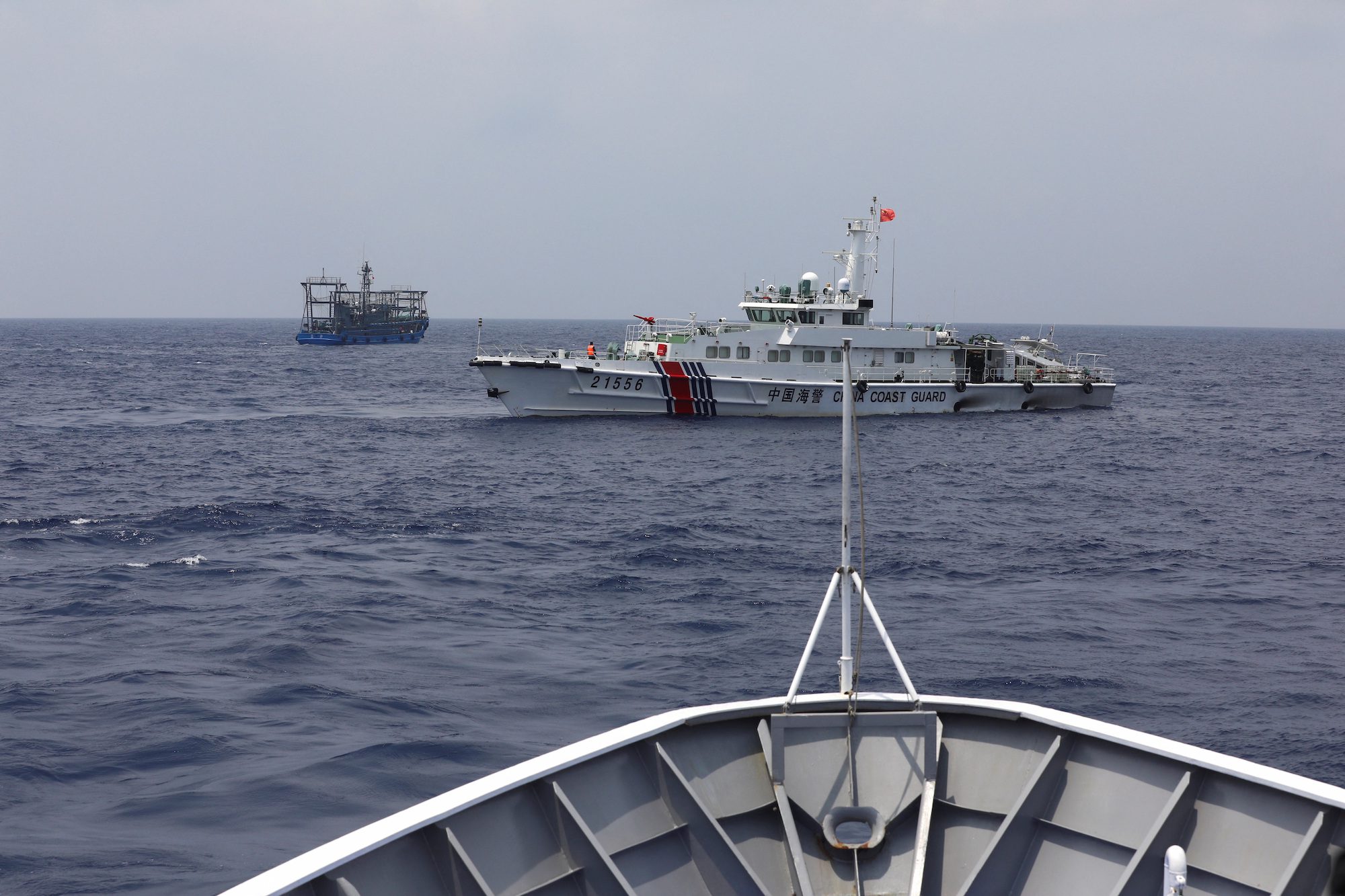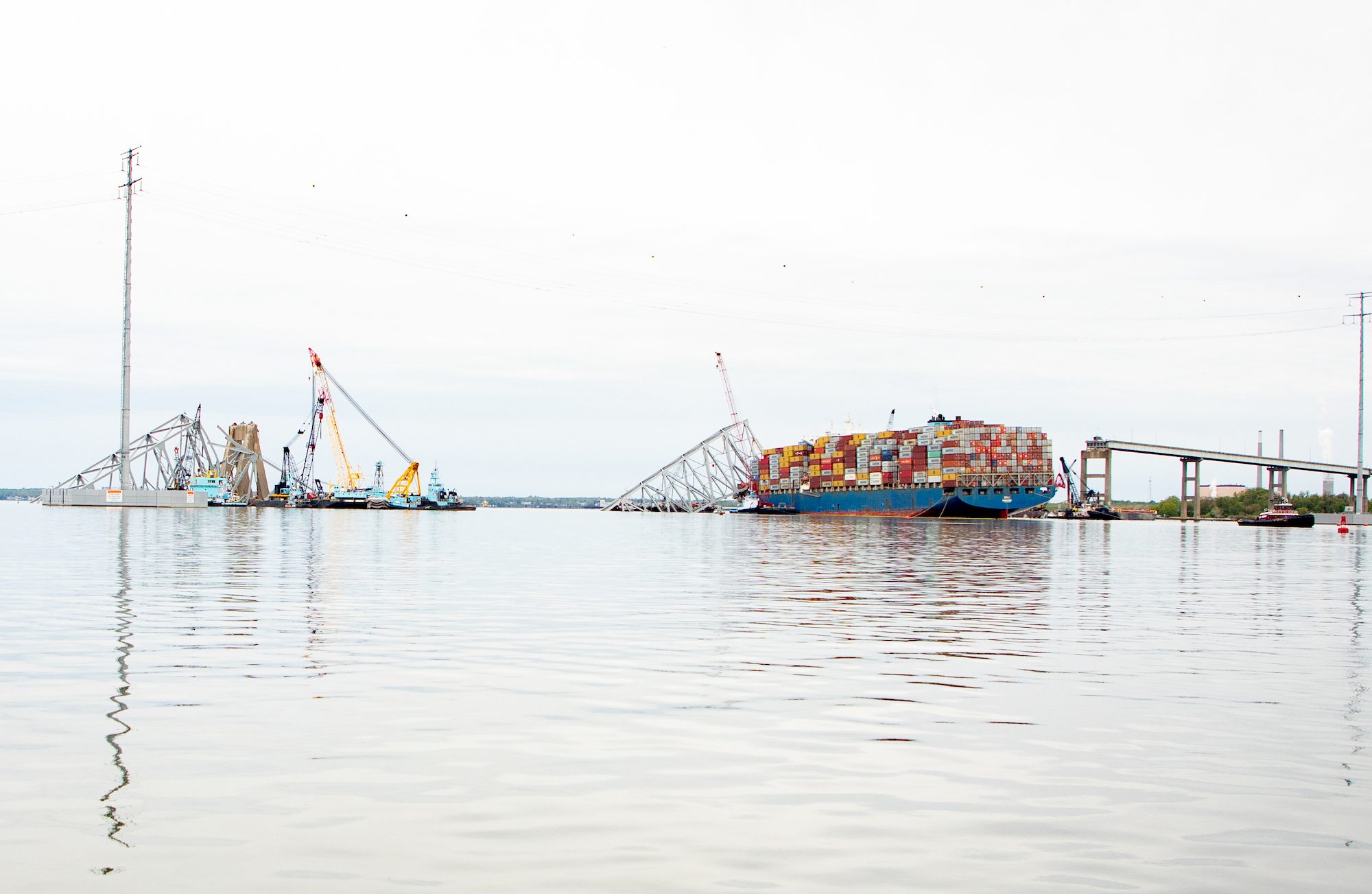South Korean shipbuilder Hanjin Heavy Industries & Construction has announced its first commercial shipbuilding order in six years with an order for four 5,500 TEU containerships.
The order comes on the back of one of the hottest container shipping markets on record that has driven the global shipbuilding orderbook to highs not seen in years.
Hanjin Heavy Industries & Construction says the new order marks its re-entry into commercial market after a group of creditors led by the Korean Development Bank sold the shipyard to Korean conglomerate Dongbu Corp earlier this year. Since its last commercial shipbuilding order in 2015, the shipyard has survived on mainly on subsidized naval and government ships as it underwent a reorganization.
“However, as the global shipbuilding market has recently recovered and newbuilding orders have increased in the merchant ship market, Hanjin Heavy Industries & Construction has developed the latest shipbuilding and eco-friendly technologies based on the judgment that it has secured considerable competitiveness in terms of technology, quality, delivery time, and productivity through self-help efforts. It has been preparing to re-enter the market,” Hanjin Heavy Industries said in a statement.
The latest order is valued at about $270 million and was awarded by an undisclosed European shipping company.
“We have confirmed our competitiveness in the market by winning the first order for commercial vessels since the merger and acquisition, and are now able to lay the foundation for early business normalization,” a spokesperson for the shipyard said.
Hanjin Shipping, a sibling to Hanjin Heavy Industries in the Hanjin Group conglomerate, was the world’s 7th largest container line when it collapsed in 2016 amid a prolonged market slump, sending ripples shockwaves across the global shipping industry (not to mention the Hanjin Group) as its vessels became stranded around the world. The head of Hong Kong-based Seaspan once even compared Hanjin’s demise to the 2008 collapse of Lehman Brothers at the peak of the global financial crisis.
Since then, however, the container shipping industry has undergone some serious consolidation, including ushering in the rise of major shipping alliances (or vessel sharing agreements) that have allowed previously-competing lines to pool their vessels, terminals and networks. Today, the three major shipping alliances collectively control about 80% the world’s entire container shipping market and their members are now raking in billions of profits as pandemic-fueled port congestion and supply chain disruptions drive record-high freight rates and newbuilding orders.
Unlock Exclusive Insights Today!
Join the gCaptain Club for curated content, insider opinions, and vibrant community discussions.

 Join The Club
Join The Club













